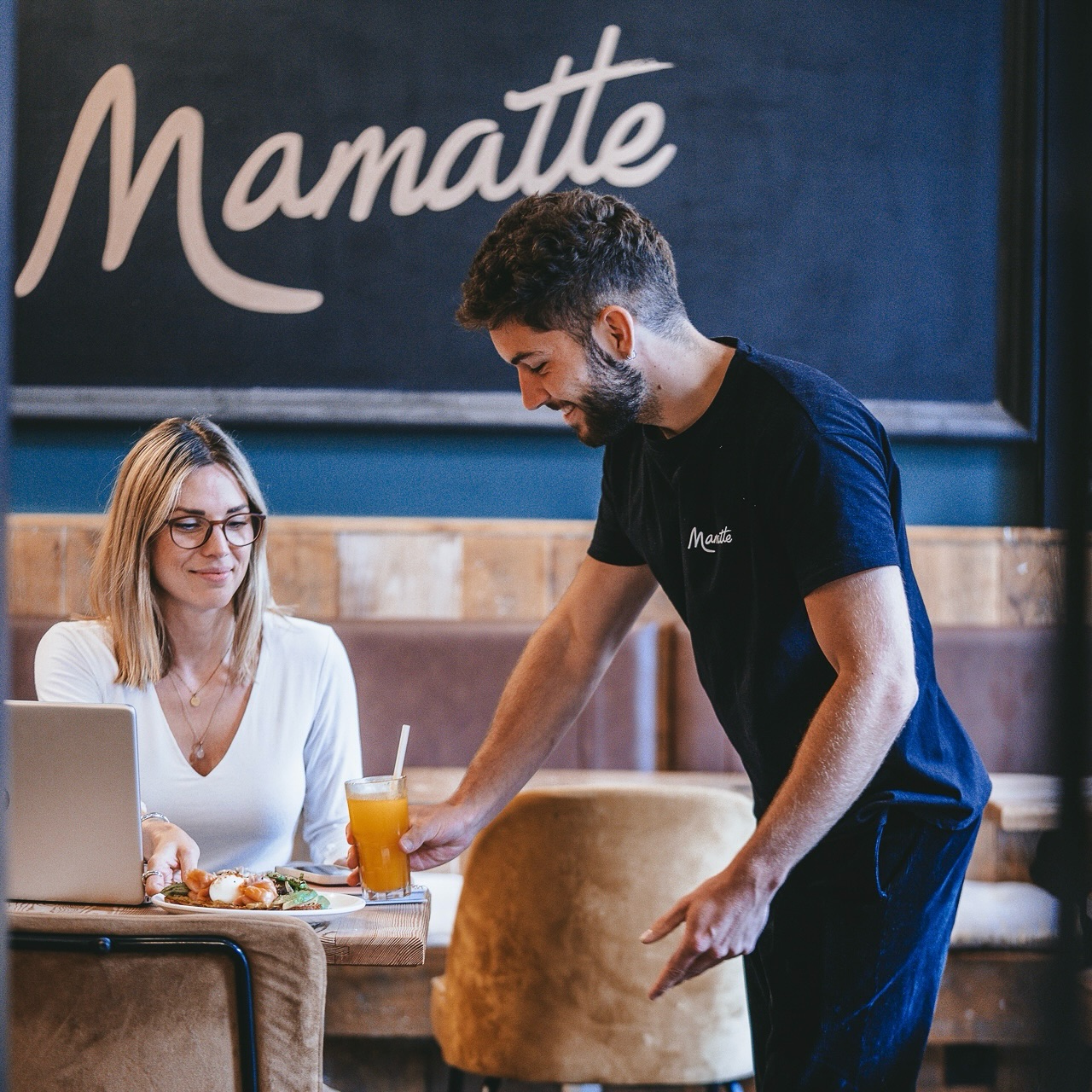Faced with the rise of hybrid shops, the inevitable decline of the traditional French bakery.
Creating living spaces—that’s the clear positioning embraced by the new wave of bakery entrepreneurs. It profoundly transforms the role of this business, long rooted in the daily lives of the French: no longer is it just about welcoming customers for a few seconds to make a quick purchase. Everything is designed to extend the moment, at any time of day, with dining now becoming the core focus of the offering. This shift is gradually erasing many of the traditional hallmarks of the bakery sector.
Recently, DJ Bob Sinclar performed a set inside The French Bastards bakery on Rue Oberkampf, in Paris’s 11th arrondissement. Far from anecdotal, this event is part of the growing 'bakery rave' trend, which involves hosting musical performances in bakeries around the world. This movement symbolizes a major shift in the mission of artisan bakers: beyond making bread and sweet treats, they now need to offer a complete experience to their customers. This is a daily challenge that touches everything from the product offering to the layout of the shop. It demands new skills—not only must the baker be a skilled artisan capable of offering unique products, but also a savvy retailer.
These 'hybrid' bakeries are gradually overtaking the traditional model, which was limited to takeaway sales. Among the pioneers of this modern approach, Maxime Lefebvre rejects the term 'concept' to describe the model he has developed with his Mamatte brand, now established in Amiens, Longueau (Somme), Lille (Hauts-de-France), and Reims (Marne): 'It’s the evolution of a journey—my journey! I’m a trained baker-pastry chef, and I’ve always wanted to go further. The classic approach to bakery frustrated me; I needed to create living spaces to better connect with my customers.' When he opened near Amiens train station in 2015, he offered 30 seats and developed a snacking menu 'that wasn’t yet common in bakeries,' with items made to order. Four years later, he extended the concept in Longueau with brunch options and table service. Since then, the offering has matured into a well-balanced blend of 'innovation and consistency across consumption moments.'
An irresistible geographical expansion, capable of feeding the appetite of the modern consumer.
The artisan from Amiens, who is now expanding through franchising, is not the only one to have taken hybridization to new heights. In Caen (Calvados), La Mie Paulette offers a welcoming setting with vintage furniture, where daily specials, pizzas, and sweet treats—from travel cakes to elaborate pastries—are available throughout the day. A similar approach can be found in Brittany at the two locations (in Châteaulin and Rostrenen) of KB, the 'Fournil Fast Good' concept created by Hélène and Laurent Maeseele. These examples reflect the desire of 'traditional' artisan bakers to break free from the codes they’ve operated within for decades, in order to continue nourishing the public on a daily basis.

While the formula seems to have proven effective, it raises questions about how consumers perceive bakeries today. In-store, the diversity of products can blur the clarity of the offering, and businesses are often forced to make trade-offs that further distance them from the core fundamentals of the trade. The numbers speak volumes: among the most 'hybrid' operators, bread accounts for only 5 to 15% of activity, compared to over 50% for snacking.
This reality requires bold strategic choices, such as fully centralizing production or eliminating certain items. 'In 2024, we didn’t offer any Yule logs,' admits Maxime Lefebvre. By opting out of these key seasonal events in the sector, the very mission of the bakery is being called into question—as is the use of the term itself, which businesses like Mamatte have had to abandon due to the lack of on-site bread kneading. This might well lead, in the coming years, to the invention of new names for these UFOs—Unidentified Baking Objects!
By Rémi Héluin